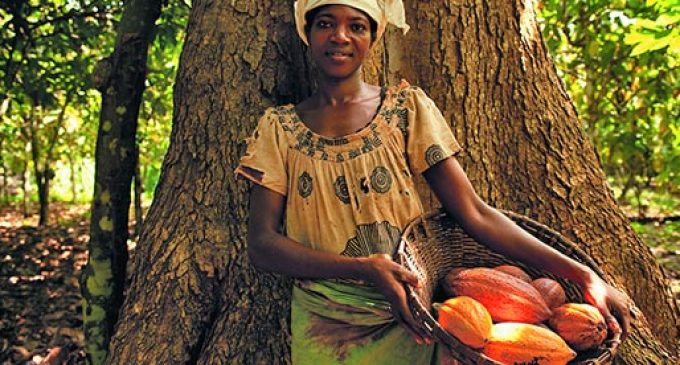Nestlé Makes Progress on Empowering Women in Cocoa Supply Chain

Nestlé’s work to empower women in the cocoa supply chain in Côte d’Ivoire kicked off in 2013 and the Swiss food and beverages giant is making more headway with its partners on this important issue. In recent months, for example, Nestlé has helped train four cocoa co-operatives on gender issues in order to open more roles, such as lead farmers and nursery managers, to women. The co-operatives have also now produced their own action plans for improving the positions of women in the cocoa supply chain.
The new measures are reflected in a new progress report Nestlé has published on its Action Plan to help improve the lives of women in its cocoa supply chain in Côte d’Ivoire. The Action Plan is part of the Nestlé Cocoa Plan programme launched in 2013 in Côte d’Ivoire to improve the lives of cocoa farmers and the quality of their crops, and to tackle low productivity and child labour.
The Action Plan was updated in August 2014, following the Fair Labor Association’s (FLA) assessment of Nestlé’s cocoa supply chain in the country.
As part of the other steps taken recently, the number of women who lead and oversee Nestlé cocoa plantlet nurseries has increased from 3 percent to 23 percent. There are a total of 32 Nestlé-run plantlet nurseries.
Nestlé’s progress report reflects actions it has taken between August 2014 and January 2015. The report discusses Nestlé’s plans for 2015 under three main action pillars: promoting equal opportunities, giving women a voice and helping to increase women’s income.
Though Ivorian women play a number of direct and supporting roles in cocoa production, their roles often go unrecognised. Men take responsibility for collecting payment for the cocoa, often making a woman’s compensation for her labour dependent on her relationship with a man.
Thus, challenging the perceptions of women’s roles in the cocoa supply chain are an important dimension to ongoing work of Nestlé and its partners. Nestlé plans to expand the roll out of its Action Plan for female cocoa farmers to Ghana in mid-2016.


































